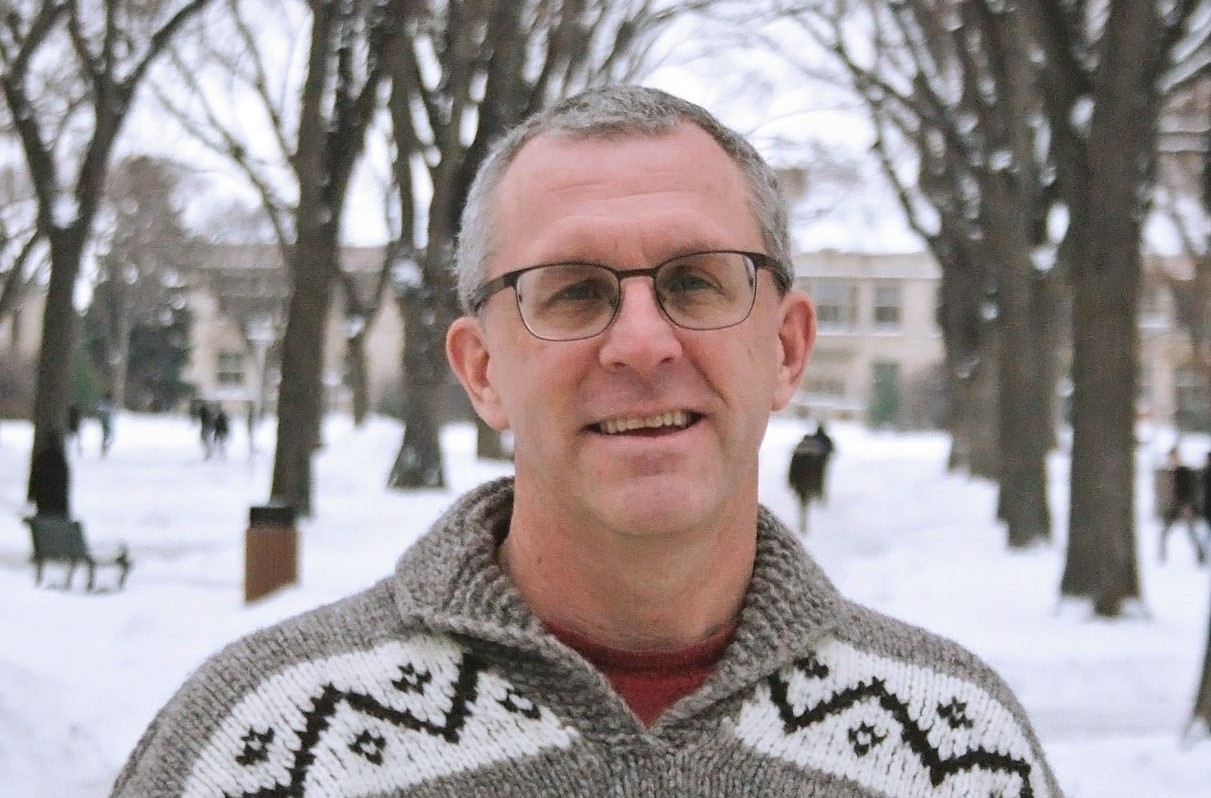
SENS professor is an award-winning mentor
University of Saskatchewan (USask) environmental scientist Dr. Colin Laroque (PhD) stresses hands-on learning in providing his undergraduate students with high-quality, innovative research experiences—an approach that has earned him wide recognition, including an international mentorship award.
By SARATH PEIRISThe U.S. Council on Undergraduate Research has selected Laroque as its 2018 Geosciences Undergraduate Research Mentor, an honour that recognizes an individual who is a role model for impactful and transformative student-faculty mentoring relationships, and who maintains a sustained and innovative approach to undergraduate research.
The award was formally presented on Nov. 6 at the Geological Society of America meeting in Indianapolis. Laroque, a professor in the USask College of Agriculture and Bioresources and in the School of Environment and Sustainability (SENS), estimates he has mentored close to 100 students over his career.
“I believe that keeping students engaged in learning about the physical environment means that, as much as possible, one should take them out into a new environment for direct experience,” said Laroque.
For many first-year students in his introductory environmental science course, that means an opportunity to become adept at using the Canadian Light Source synchrotron to conduct their own research—a novel program Laroque began three years ago.
“Colin’s excellence in collaboration and interdisciplinary teaching and mentorship, particularly in the area of sustainability, provides an exceptional undergraduate student experience,” said Dr. Mary Buhr (PhD), dean of the College of Agriculture and Bioresources. “His students are empowered to make changes happen, and with his leadership they bring sustainability into action.”
The Saskatoon-born Laroque, whose family farm is near Duck Lake, said his teaching style emulates the practices of his extended Métis family, using experiential instruction to share their environmental knowledge gleaned over generations.
“I integrate students’ field experience into the classroom, so that they can work through their projects from field collection to lab work, data analysis, report writing and public presentations,” he said. “This approximates most closely what real research involves and prepares students well for graduate studies and many other job-related endeavours.”
Laroque received a bachelor’s degree from USask and his master’s and PhD at the University of Victoria. He taught for 10 years at Mount Allison University in New Brunswick before returning to teach at USask in 2014.
“I didn’t have post-doctoral fellows or PhD students at Mount Allison, so I developed a style to work with the undergrads there,” Laroque said. “In a certain sense, first-year students enjoy the research more. They think it’s a special thing for an instructor to take them under their wing at an early stage.”
In his nomination, students highlighted the substantial impact of his mentoring and the family-like atmosphere of the Mistik Askiwin Dendrochronology Laboratory which Laroque directs. That’s where Laroque introduces undergraduates from disciplines such as agriculture, fine arts, engineering, psychology and education to sound research. The students conduct tree ring-related research to understand past climates, past chemical environments, ecosystem dynamics, and past human activities.
A parent of a student who blossomed under Laroque’s guidance wrote: “Dr. Laroque doesn’t just make great students, he makes great men and women. He challenges them intellectually and academically. He makes them confident personally and socially by trusting and believing in them.”

